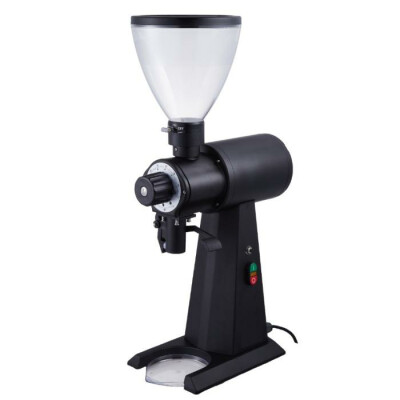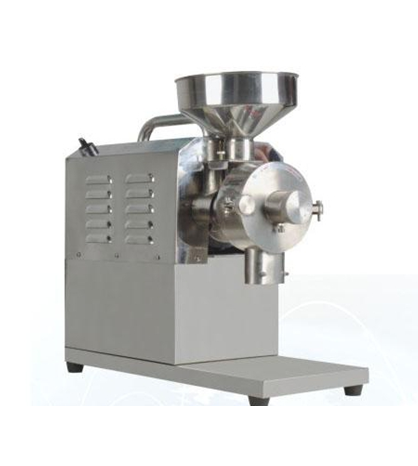Industrial Coffee Grinder: Essential for Coffee Shops and Cafés
Industrial Coffee Grinder: Essential for Coffee Shops and Cafés
Blog Article
Industrial Coffee Grinder Overview: Boost Effectiveness and Quality
In the affordable landscape of coffee production, picking the ideal commercial coffee grinder plays a pivotal role in boosting both performance and item high quality. Recognizing the nuances of different grinder kinds and vital attributes-- such as personalized work setups and durable building and construction-- can substantially affect the final taste profile of the coffee. Moreover, the optimization of the grinding procedure, combined with attentive upkeep, is essential for sustaining efficiency in time. As we discover these vital components, it becomes apparent that the ramifications prolong past plain devices selection, impacting general organization success in manner ins which warrant closer evaluation.
Comprehending Mill Types
When picking an industrial coffee grinder, comprehending the various kinds available is crucial for maximizing both flavor removal and operational effectiveness. The two main types of mills are blade grinders and burr mills.

Inevitably, selecting the ideal kind of grinder is indispensable to preserving top quality and efficiency in coffee manufacturing, making it vital for businesses to invest in high-grade burr grinders for ideal outcomes.
Trick Features to Think About
Picking an industrial coffee grinder needs mindful factor to consider of several crucial attributes that can considerably influence both efficiency and the total coffee experience. Among the primary aspects to assess is the grinding device. Burr mills are generally chosen over blade mills, as they give a consistent grind size, which is important for optimum extraction and taste.
An additional crucial function is the grinder's capacity. A versatile mill with numerous setups enables you to tailor the grind dimension to different developing techniques, improving the coffee's flavor account.
The construction product additionally contributes in resilience and maintenance. Stainless-steel elements commonly provide longevity and are easier to cleanse, which is necessary for preserving hygiene criteria. Last but not least, examine the grinder's sound level, especially in an active coffee shop or production environment, where too much noise can be turbulent. Buying a mill that balances these attributes can substantially improve both operational effectiveness and the quality of the coffee offered.
Optimizing Grinding Refine
To accomplish the most effective results in coffee prep work, optimizing the grinding process is important. The work dimension significantly influences removal, taste, and overall high quality of the made coffee. Various brewing techniques call for specific grind dimensions; for instance, espresso demands a great work, while French press necessitates a coarse structure. Recognizing the relationship between work size and developing approach is the very first step in optimization.


Furthermore, keeping an eye on the grinding rate can enhance the procedure. Slower grinding site link usually generates much less warmth, maintaining fragile tastes and scents. On the other hand, quicker grinding may produce extreme heat, negatively affecting the coffee's top quality.
Upkeep and Care Tips
Appropriate maintenance and care of commercial coffee mills are crucial for ensuring optimum efficiency and durability. Routine cleaning is the foundation of upkeep; deposit accumulation can impact flavor and grinding efficiency. It is advisable to cleanse the mill after each use, wiping down the outside and eliminating any type of coffee grounds from the burrs.
Additionally, evaluate the grinding burrs for deterioration. Boring burrs can jeopardize work uniformity, so they must be replaced as necessary. Industrial Coffee Grinder. Periodically calibrating the grinder is additionally critical, as this preserves the desired work dimension for various developing approaches
Lubrication of relocating components ought to be performed according to the supplier's specs, as this decreases rubbing and extends the life of the tools. It is important to use food-grade lubricating substances to guarantee safety and conformity with health guidelines.
Lastly, maintain the grinder in a completely dry and stable atmosphere to prevent corrosion and deterioration. By adhering to these upkeep and care pointers, operators can boost the efficiency of their commercial coffee mills while making sure premium result and extended functional life.
Roi Analysis
Assessing the roi (ROI) for commercial coffee grinders is important for services seeking to enhance their coffee manufacturing capacities. An extensive ROI evaluation assists establish the economic viability of investing in premium grinders, enabling services to visit site evaluate the preliminary prices versus possible gains.
To perform a comprehensive ROI analysis, companies ought to think about a number of vital variables. Initially, analyze the acquisition rate of the mill, including setup and any required modifications to existing infrastructure. Next off, determine functional expenses, including power intake, upkeep expenses, and labor performance renovations. High-performance mills commonly cause decreased grinding time and increased throughput, which can significantly boost efficiency.
In addition, think about the effect on product quality. Industrial Coffee Grinder. Superior mills yield an even more constant go to this site grind dimension, which can improve flavor accounts and client complete satisfaction, ultimately driving sales. By boosting the quality of the end product, services can validate greater prices, bring about enhanced earnings
Conclusion
In summary, an industrial coffee mill plays a pivotal role in enhancing both efficiency and product quality within coffee manufacturing. Inevitably, the strategic financial investment in a dependable grinder contributes significantly to improved revenue and competitiveness in the coffee sector.
In the affordable landscape of coffee manufacturing, choosing the best industrial coffee mill plays a crucial duty in improving both effectiveness and product quality. The two key kinds of mills are blade grinders and burr grinders. Within the burr mill classification, there are flat burr mills and conelike burr grinders, each with its advantages. Burr mills are normally chosen over blade grinders, as they give a constant grind dimension, which is vital for ideal extraction and taste.
In summary, an industrial coffee mill plays a crucial function in enhancing both performance and item quality within coffee production.
Report this page